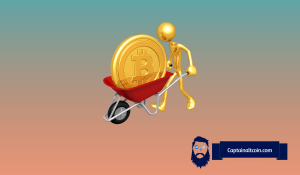Breaking the Network Effect: Can Decentralization Level the Playing Field?
A network effect happens when a product becomes more valuable as more people use it. Think about the telephone, one phone is useless, but millions of connected phones create a communication revolution. The same principle drives today's tech giants to unprecedented power.
\ From a business perspective, network effects create winner-take-all markets where the biggest player gets exponentially stronger. From a technical standpoint, they leverage data, connections, and user behavior to build moats that competitors can't cross: the more users you have, the more data you collect, the better your algorithms become, the more users you attract.
The Tyranny of Scale
\ Today's internet giants didn't just stumble into dominance, they weaponized network effects to lock out competition and lock in users.
Meta's Social Fortress
Meta controls 2.9 billion Facebook users plus Instagram and WhatsApp networks. Each new user makes the platform more valuable for everyone else because there are more people to connect with, more content to consume, and more social validation to chase. When your friends, family, and colleagues all use Meta's platforms, switching becomes virtually impossible.
\ The company uses this dominance to crush competitors through acquisition (Instagram, WhatsApp) or copying features (Stories from Snapchat, Reels from TikTok). Network effects become a defensive weapon that turns user growth into market control.
Google's Information Empire
Google processes over 8.5 billion searches daily, and each query makes its algorithm smarter. More searches generate more data about user intent, which improves search results, which attracts more users. This creates an unstoppable feedback loop that has given Google a 92% market share in search.
\ But Google's network effects extend beyond search into advertising, where more advertisers attract more publishers, which generates more ad inventory, which attracts more advertisers. The company's ecosystem locks in both sides of the market through sheer scale and data advantages.
Amazon's Everything Store
Amazon's marketplace hosts over 2 million sellers serving 300 million customers worldwide. More sellers mean more product selection for buyers, while more buyers attract additional sellers seeking larger markets. Amazon sits in the middle, collecting fees and data from both sides while building an increasingly dominant position.
\ The company uses network effects to expand into new markets from cloud computing (AWS) to logistics (Prime) to entertainment (Prime Video). Each service strengthens the others, creating an integrated ecosystem that competitors struggle to match.
\ Want to compete with any of these giants? Good luck building a better social network when everyone's already on Facebook, or a superior search engine without Google's data advantages.
\
Decentralized Networks as Equalizers
But what if the rules of the game could change completely? What if network effects could be distributed rather than concentrated, shared rather than hoarded?
\
Mastodon vs. Twitter's Chaos
When Elon Musk's acquisition turned Twitter into X, millions of users fled to Mastodon, a decentralized social network that no single entity controls. Instead of one company running all servers, thousands of independent servers connect through open protocols. Users can choose their server while still communicating across the entire network.
\ Mastodon's federated approach means no central authority can ban accounts globally, manipulate algorithms for profit, or shut down the entire network. The platform grows stronger through distribution rather than concentration, with each new server adding resilience rather than creating single points of failure.
\
Bitcoin's Monetary Revolution
Bitcoin proved that networks can operate without central control while maintaining security and trust. Over 15,000 nodes worldwide validate transactions and maintain the blockchain, making the network increasingly secure as more participants join. No government or corporation can shut down Bitcoin because there's no central server to target.
\ The network effect here works differently, more users increase adoption and liquidity, more miners add security, and more developers improve the protocol. But unlike traditional networks, no single entity captures all the value. The benefits distribute across all participants.
\
Filecoin's Storage Alternative
While Amazon's AWS dominates cloud storage through centralized infrastructure, Filecoin creates a peer-to-peer storage network where anyone can contribute unused hard drive space. More storage providers mean lower costs and better redundancy for users, while more users create revenue opportunities for storage providers.
\ This approach challenges AWS's dominance by distributing both infrastructure and economic benefits. Instead of paying Amazon's markup, users can access storage directly from a global network of providers competing on price and performance.
\
Why It's Hard to Compete
Despite their promise, decentralized networks face real challenges in competing with Big Tech's polished systems.
\
The Usability Gap
Setting up a Mastodon account requires choosing a server, understanding federation, and navigating unfamiliar interfaces. Bitcoin transactions involve managing private keys, calculating fees, and waiting for confirmations. Most decentralized platforms prioritize ideology over user experience, creating barriers that mainstream users won't tolerate.
\ Compare this to creating a Facebook account or making a Google search, these centralized systems hide complexity behind intuitive designs that work instantly. Network effects mean they can invest billions in user experience improvements that individual decentralized projects can't match.
\
Fragmented Communities
Decentralized networks often split into competing protocols, chains, and communities that don't interoperate well. Mastodon users can't easily communicate with users on other decentralized platforms. Bitcoin maximalists dismiss other cryptocurrencies. Each fragment weakens the overall network effect by dividing users and developers.
\ Web3's fragmentation problem has become so severe that "chain abstraction" emerged as a major infrastructure theme in 2024, with projects racing to build bridges between isolated blockchain networks. The irony is obvious, decentralization created so much fragmentation that we need new centralized services to make it usable.
\
Weak Economic Incentives
Traditional platforms can afford to subsidize user acquisition because network effects eventually generate monopoly profits. They offer free services, pay content creators, and absorb losses for years while building market position. Once dominant, they can monetize through advertising, fees, or data sales.
\ Decentralized networks struggle with this model because there's no central entity to coordinate subsidies or capture monopoly profits. Token incentives can work initially, but they often create speculation rather than genuine utility. Users come for rewards but leave when token prices fall, weakening the network effect just when it needs strengthening.
\ However, better solutions are emerging: cross-chain bridges that connect isolated networks, improved onboarding flows that hide technical complexity, and stronger economic incentives through token rewards and governance participation. The gap is narrowing, but it's still significant.
\
Future Outlook
The question isn't whether decentralized networks will completely replace Big Tech platforms, that's probably impossible and potentially undesirable. Network effects create genuine value through coordination and scale that shouldn't be dismissed.
\ Instead, the goal should be ensuring that no single entity can control entire categories of digital infrastructure. Decentralized alternatives provide crucial checks on centralized power, offering escape routes when platforms become extractive or censorious.
\ We're likely heading toward a hybrid internet where centralized and decentralized systems coexist. Mainstream users might stick with polished Big Tech platforms for convenience, while power users and niche communities migrate to decentralized alternatives for control and censorship resistance.
\ The network effect won't disappear, but it might distribute more fairly. Instead of winner-take-all markets, we could see winner-take-most markets where dominant platforms face real competition from coordinated networks of smaller players.
\
Own Your Network
The revolution isn't about destroying network effects, it's about democratizing them. When you control your data, choose your algorithms, and participate in governance decisions, the network serves you rather than extracting value from you.
\ Decentralized networks offer something centralized platforms never can: the assurance that your digital life won't disappear because one CEO makes a bad decision or one government changes policy.
\ The choice is yours. You can remain dependent on platforms that view you as a product to be optimized, or you can join networks that treat you as a stakeholder with genuine control.
\ The network effect is real, powerful, and inevitable. The only question is who benefits from it; tech giants or the people who create the value in the first place.
\ \ \ \
You May Also Like

Traders Call It the Top Crypto for 2025 With 45x Potential, While ADA and XRP Could Deliver But Small

MARA Produces 736 BTC While CleanSpark Mines 629 Bitcoin in September
